


A team of 50 young international interviewers will talk to their older compatriots in their mother tongue about the past and the future of the continent, about their experiences, fears and hopes. This project is still in progress.
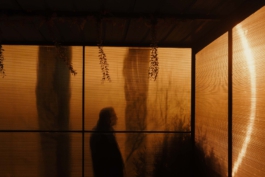
"I do think that the most proper thing [I did] is that I made a new pair of shoes for the Georgian language."

Besik Kharanauli is perhaps Georgia’s most important contemporary poet, born in 1939, in Tianeti.
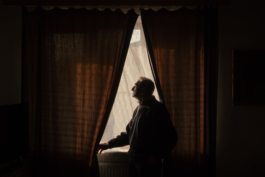
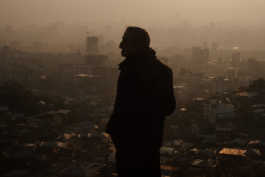
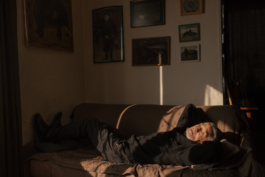

Kharanauli studied philology at Tbilisi University. His literary career then began in 1954, when he first published poems in the magazine “Drosha”. Later in 1968 he published his first poetry collection. His poetry always stood out as non-traditional and helped to establish blank verse as a poetic form in Georgian literature. Kharanauli worked for various magazines and newspapers, and has been nominated for the Nobel Prize several times. His poetry has been translated into several languages.


"Let’s hope that the number of politicians who tolerate and accept a multicultural, multi-faith Europe is greater than the number of those who don’t."

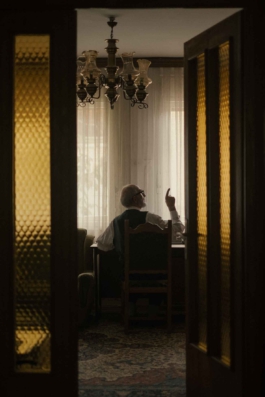
The Albanian author, literary scholar and critic, and political commentator Rexhep Qosja was born 1936 in Vuthaj [Vusanje] in Montenegro. He studied Albanian studies and literature in Pristina and Belgrade, and later became the head of the Institute for Albanian Studies in Pristina. As a literary historian, Qosja’s focus has been on the Albanian Renaissance, and as a political activist, on the issue of Kosovo, the most significant component of the ‘Albanian question’. Qosja was part of the Kosovar delegation to the, ultimately unsuccessful, peace talks with Slobodan Milošević in Rambouillet, France, in 1998. Following the end of the Kosovo war, he was also a member of the interim government of Kosovo supported by the UN. Amongst his most famous work is the novel “Death Comes from Such Eyes” (1974). Qosja lives in in Prishtina.
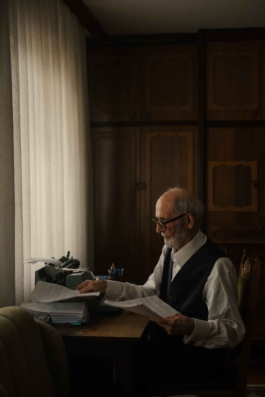
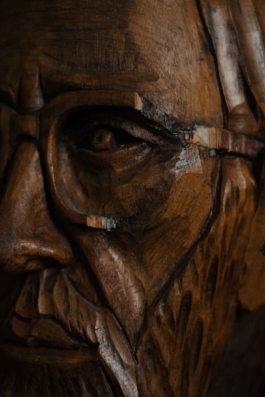
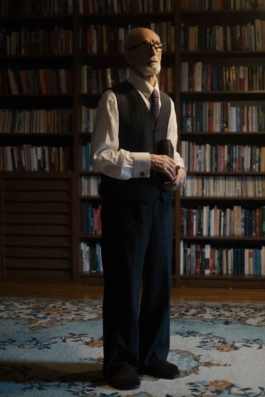
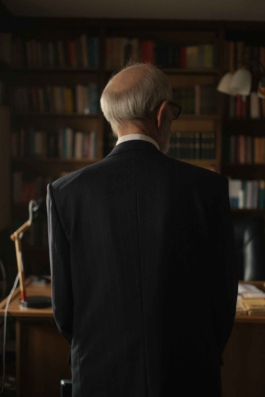
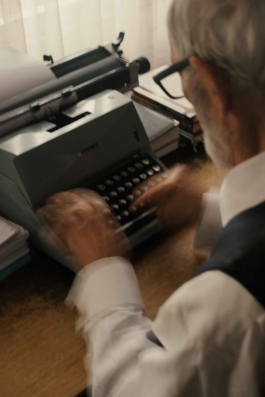

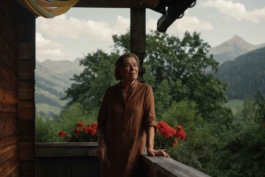
"I hope the European Union will become a real powerhouse, not in the military sense, but as a moral authority. It should be a single united entity – but that doesn’t imply that the individual member states cannot do things at a national level."


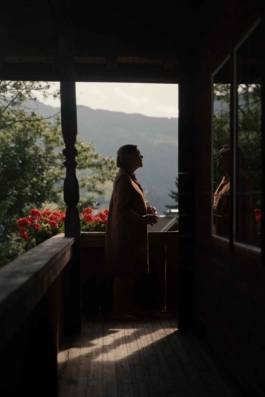
Hanna Molden is an Austrian writer and journalist born 1940 in Vienna. She was married to the late Fritz Molden, heir to the daily newspaper ‘Die Presse’ who later funded his own book publishing company, for which Molden translated several books from English to German. Originally having obtained a doctorate in political science, Hanna Molden also authored several books, and later worked as a columnist for the Wochenpresse, Cosmopolitan, and Bunte.

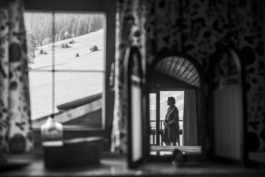
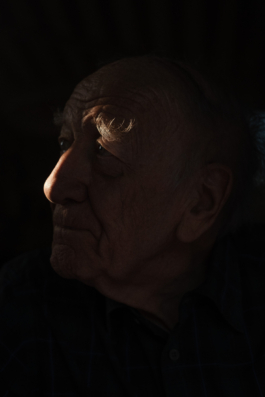
"In China, Confucius went to the great monarchs and said, ‘My lord, you should do this and that.’ In Athens, Solon said to the people, ‘This and that will happen, if you don’t intervene.’ […] This is a true mark of Europe."
Christian Meier, born 1929 in Pomerania in present-day Poland, is a renowned intellectual and professor of Ancient History. In 1950, he left the GDR to move to West Germany. After his studies of history, classical philology and Roman law, he first became a professor in Basel. Later on he taught in Cologne, Bochum and finally, in Munich where he held his position until his retirement in 1997. From 1980 to 1988, Meier was chairman of the important “Association of Historians in Germany”, which coincided with famous “Historikerstreit”, a controversial scholarly debate in West Germany as to the interpretation and significance of the Holocaust, catapulting Meier into the public spotlight. Between 1996 to 2002, Meier was the President of the influential “German Academy for Language and Poetry”. Meier not only wrote influential and widely read books on the values of Athenian democracy and the Fall of the Roman Republic, but also published extensively about the “collective memory” and the question of guilt in the German mindset.
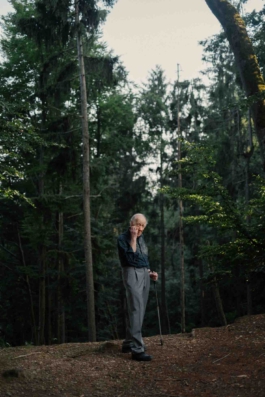

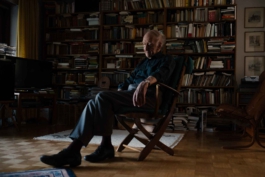
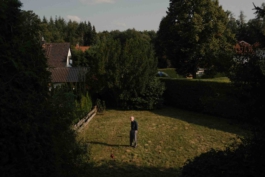

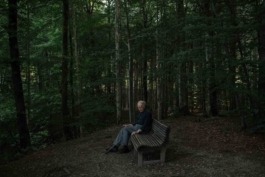
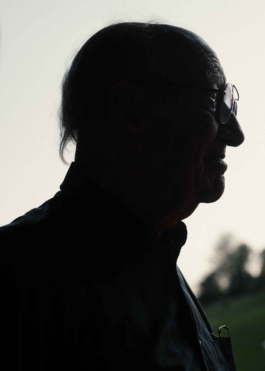
„If a stork dropped me now, I’d choose Europe.“
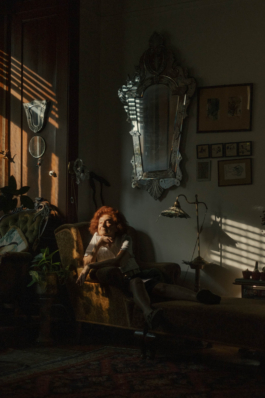
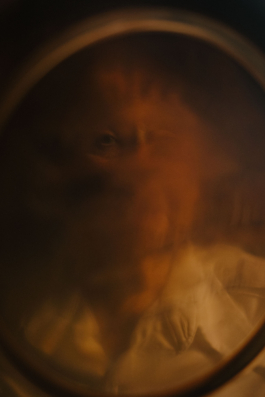
Vera Szekeres Varsa, born in 1933 in Budapest, is a Hungarian language educator and former chair of the Hungarian branch of Amnesty International.
Szekeres Varsa first wanted to become a literary translator, but became a language educator instead, teaching Russian, English, and French. Having survived the holocaust as a child, as a teacher she says she always sought to demonstrate the value of freedom and independence to others when having none herself as a child.
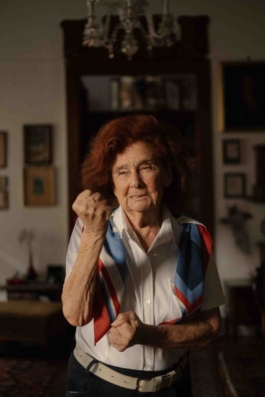
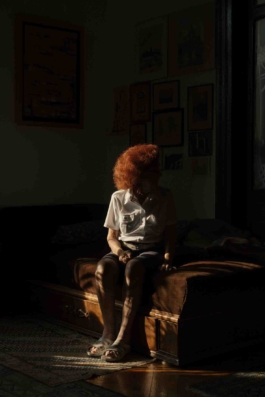
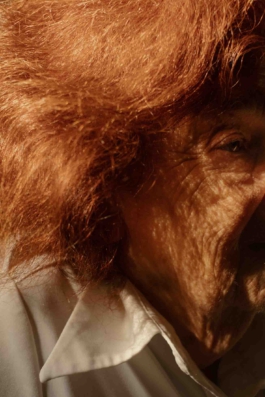
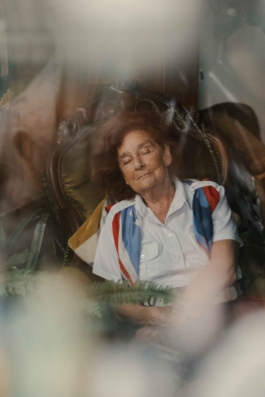
Her options initially seemed limited due to her family background, she nevertheless succeeded in leading the fearless life she wanted to. After the fall of Communism in Hungary, she joined the liberal SZDSZ party and served as a member of the District Council in Budapest. She later served as president of Amnesty International in Hungary for many years. Vera Szekeres Varsa has a daughter, three grandchildren, and five great-grandchildren.
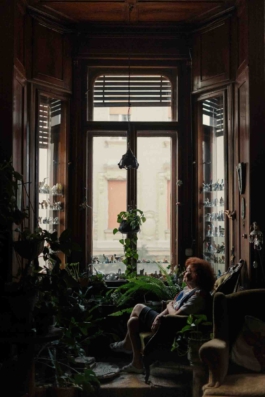
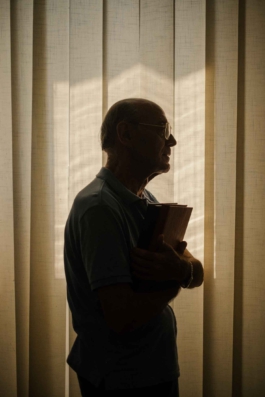
„I pretty soon realized that there is a Greek Europe, an Iberian Europe, and a Europe in the Scandinavian fashion. I saw that these were very different Europes and that Europe is, practically, an everyday adjustment of these different starting positions for joining Project Europe."
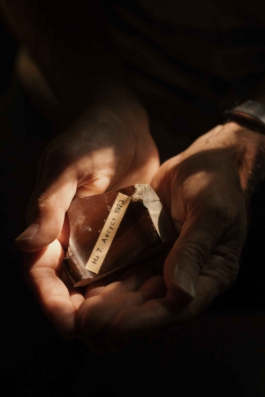
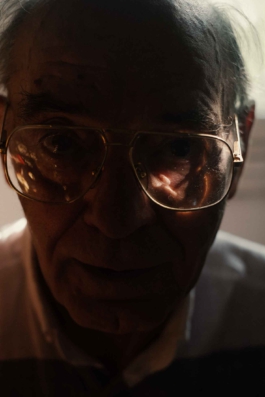
Dimitar Belchev is a former electrical engineer and diplomat, born 1946 in today’s North Macedonia. Growing up in the capital Skopje his youth was shaped by two events, the flood in 1962 and the earthquake one year later. As a Red Cross volunteer Belchev began to take on responsibility early on. Afterwards, until his graduation at the Electro-Technical-Faculty in 1965, Belchev travelled a lot – to almost all European countries. He was an active member of the youth travel organization, the scouts and the mountain climbers. These experiences not only shaped his cultural but also political awareness.



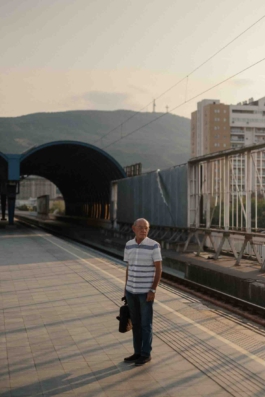
Still Belchev’s first job was at Macedonian Railways from 1972 until 1982 where he conducted the planning, design and construction of power stations for propulsion of electric trains. After another ten years as a representative to Macedonia on behalf of a large commercial enterprise, he was appointed Undersecretary for Economic Affairs at the Ministry of Foreign Affairs in 1992. In this position he participated in the negotiations for accession of the Republic of Macedonia in the specialized agencies of the United Nations and worked for Macedonia’s Mission to the European Union.

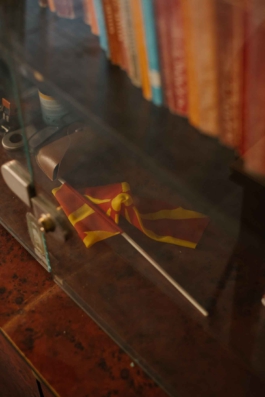
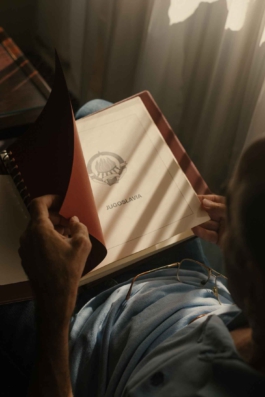
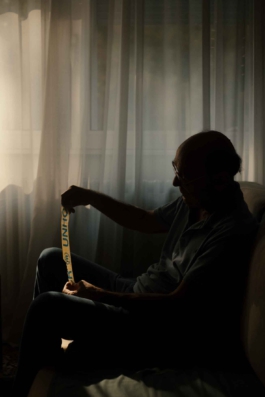
„If we [the UK] don’t have access to the art, the architecture, the music, say nothing of the ideas and the philosophy of European countries, then we are very, very impoverished."

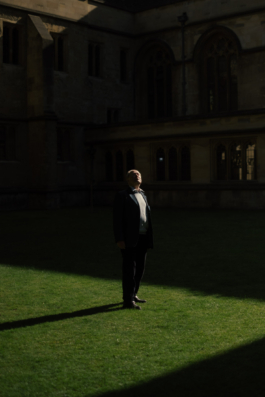
Dr Ray Ockenden is an emeritus fellow of Wadham college at the University of Oxford, which he joined in 1967 as its first fellow in German.
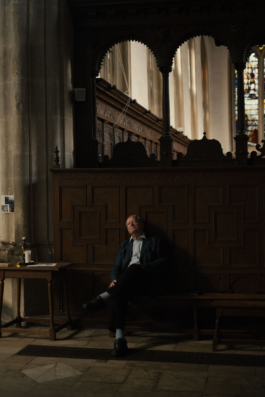
Ockenden started to learn German at the age of 13. Following an influential trip to Hamburg, which sowed the seeds for his interest in languages, and curiously for an Englishman, also converted his tea drinking habits, Ockenden first spent a year in Heidelberg and then went on to complete an Oxford undergraduate degree in German and French. Following an exploratory year as a schoolmaster and a year as a graduate student at Balliol College at the University of Oxford, he took up a post as a lecturer in German at Bedford College, London, and after seven years there, joined Wadham College.
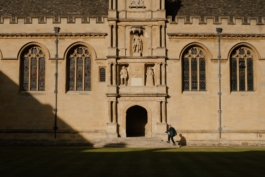

He has been teaching German literature and language for the university and for many other Oxford colleges since at Wadham, and has fulfilled several college offices such as Dean, Senior Tutor and Sub-Warden, as well as its Dean of degrees.
Ray Ockenden’s research work, like his tutorial, teaching and lecturing, has been concerned with German literature, especially poetry from 1750 to the present day. He has written about Goethe and also the later poetry of Bertholt Brecht. Most recently he published about the German romantic poet, Eduard Mörike.
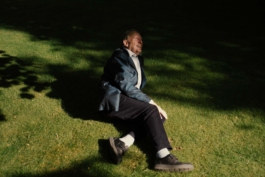
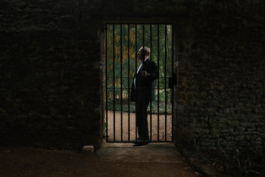
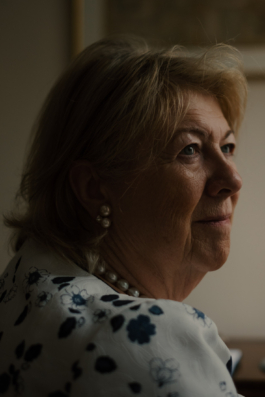
„If we [the UK] don’t have access to the art, the architecture, the music, say nothing of the ideas and the philosophy of European countries, then we are very, very impoverished."
Baroness Goudie is a Labour member of the British House of Lords and a global advocate for the rights of women and children. She works globally to promote gender equality, women’s rights and peacebuilding. Her parents emigrated to London, where Goudie was born in 1946. In 1971, she became the youngest woman elected to the Brent London Borough Council. She has since gone on to advise the Georgetown Institute for Women, Peace and Security. She is also on the advisory board for the London School of Economics – Centre for Women, Peace and Security and a member of the advisory board of Womens Forum, a leading platform dedicated to highlighting women’s voices and perspectives on global issues.
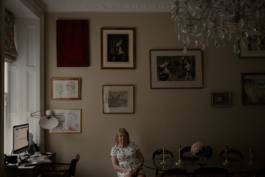
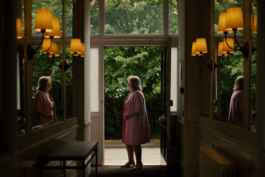
Baroness Goudie is also a member of the Gender Action for Peace and Security (GAPS) management board of advisors, and a trustee of the El-Hibri Charitable Foundation, which fosters interfaith dialogue and establish common ground and solutions to global challenges affecting mankind. Baroness Goudie is an active ambassador for ICRW, a global research institute whose mission is to empower women, advance gender equality and fight poverty as well as a founding member of the 30% Club steering committee, which aims to influence chairman into bringing more women on to corporate boards across the world.
„In order to properly see Europe you need to reflect on it too, you need to see it as a vision and an ideal."
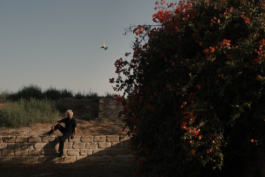
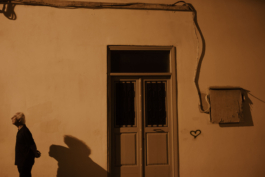
Kyriakos Charalambides is one of Cyprus’ most famous and celebrated living Cypriot poets.
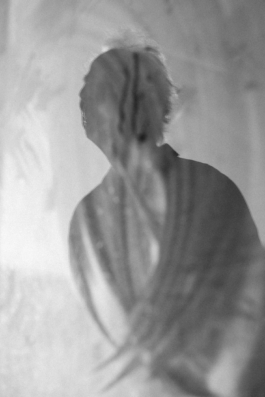

Charalambides was born in Achna, a village in the Famagusta district, just north of the United Nations Buffer Zone in Cyprus, in 1940. As “the poet of the family”, he started writing poems from when he was only nine years old, and later studied history and archaeology at the University of Athens.
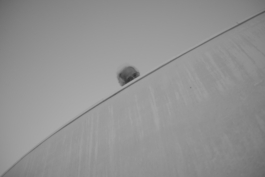
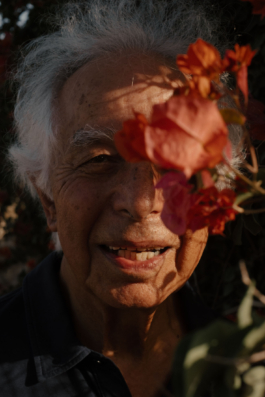
Charalambides’ poetic work includes 13 poetry collections for which he received three State Prizes for Poetry in Cyprus, as well as the State Poetry Prize in Greece in 1996. In addition, he was awarded by the Academy of Athens for his work as a whole, while in 2007 he received the Award for Excellence in Letters, Arts and Sciences of the Republic of Cyprus. In 2013 he was awarded an honorary Doctor’s degree from the Faculty of Philology of the University of Athens and was elected corresponding member in Literature by the Academy of Athens. In 2019 he became a founding member of the Cyprus Academy of Letters, Arts and Sciences. Translations of his poems have been published in 18 separate editions in English, French, German, Swedish, Serbian, Bulgarian, Rumanian and Albanian.
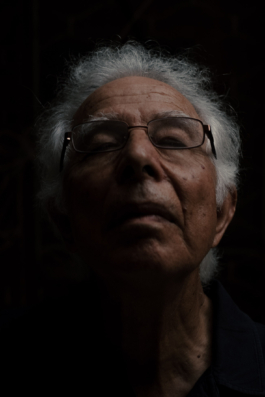
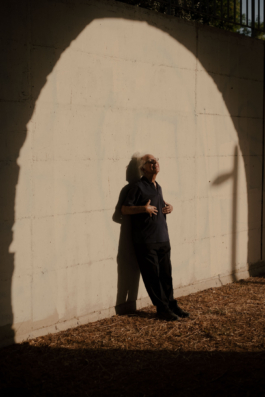
In this interview full of wisdom and poetic beauty, Charalambides talks about his childhood and joining the struggle to end British colonial rule, Europe’s Hellenistic roots, and why he regards plurality as one of Europe’s most cherished cornerstones.

„To wake every morning with enthusiasm for the day ahead.” I think it’s a great motto. I always stuck to that."
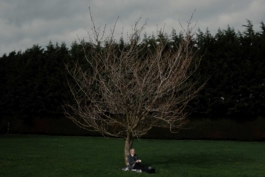
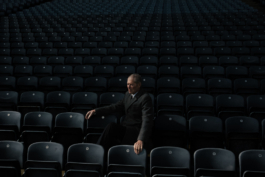
Michéal Ó Muircheartaigh is an Irish sports commentator and journalist. He became one of the most famous television reporters in Ireland and is also known as the “Voice of the Gaelic Games”.

He was born 1930 in Dún Síon near Dingle, where he grew up on a farm with nine siblings. From 1945 to 1948 he completed his studies in Dublin to become a teacher. His professional broadcasting career started in 1949, when he gave a test commentary at a hurling game. After that he worked as a part-time reporter for the Irish public broadcaster Raidió Teilifís Éireann and continued teaching until the 1980s, when his full-time sports commentator career started.

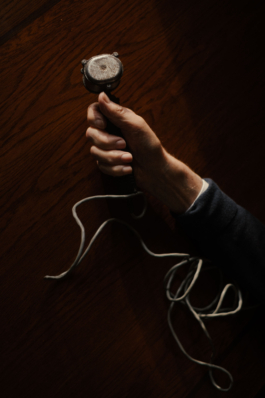
For six decades he commented on countless sports events in Ireland, which has earned him a place in The Guiness Book of Records. In 1999 he received an honorary doctorate for his engagement in broadcasting by the National University of Ireland, Galway.
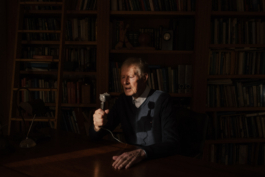
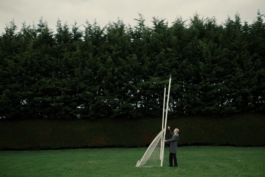

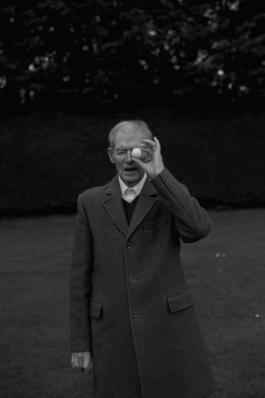
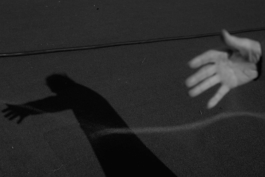

„In my generation we based our beliefs on utopias. I, in art, I always believed that ideology was something harmful. If, whatever you do, you do for an end, you shift your interest not onto something you know but onto something that you would like to be."
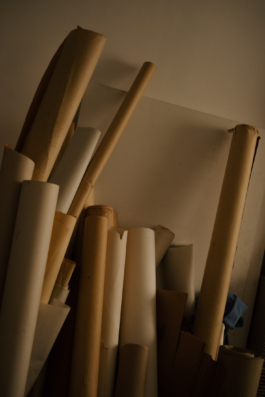
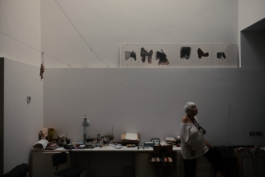

Elisa Montessori is an Italian artist working in both drawing and painting. Her work has been inspired by literature and poetry and her paintings are on display in several Italian museums. She was born in Genoa on 18 June 1931. She has been living and working in Trastevere in Rome since the mid-1950s, where she owns a studio.
She has been interested in drawing since childhood. She studied classical subjects and graduated with a humanities degree in 1953 from La Sapienza University in Rome. After graduation, she was trained at Mirko Basaldella’s studio where she met with the Gruppo Origine – Ettore Colla, Alberto Burri, and Giuseppe Capogrossi – who promoted a return to simple form and colour in abstract art. With Basaldella she started experimenting with different techniques.


In 1955 Montessori won a student grant to go to Paris, but decided to stay in Rome after her meeting with scientist Mario Tchou, who became her husband the same year. Montessori and Tchou moved to Milan and had two daughters. Following Tchou’s premature death of Tchou in 1961, Montessori relocated to Rome.
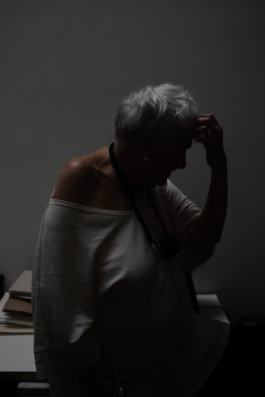
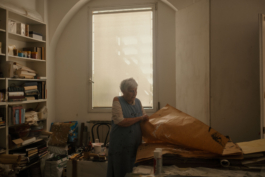
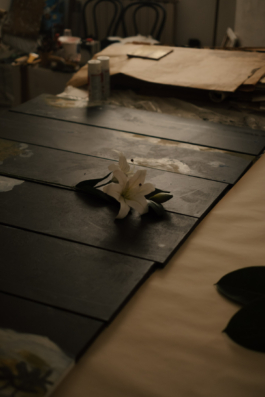
Montessori’s work is multifaceted, using many different techniques. One important aspect of her production starting from the 1980s was the role of the illustration and the relationship between image and text in both poetry and literature. She produced works inspired by the work of Shakespeare, Sylvia Plath, Patrizia Valduga, Emily Dickinson, Marianne Moore, Ingeborg Bachmann and Laura Lilli.
Her works are part of the permanent collection at the Museum of Contemporary Art of Rome, the Galleria Comunale d’Arte Moderna, Rome and the Farnesina Palace in Rome. Since 2010, a portrait representing the fragmentation of her body is part of the collection at the Uffizi in Florence.
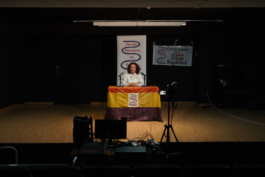
„Your generation needs to engage with a strong feminist party, […] otherwise you will keep going with a placard to the streets, as your mother and grandmother did.“
Lidia Falcón O’Neill is one of Spain’s most prominent feminist activist, as well as a politician and writer. She was born in 1935, not long before the Spanish Civil War.
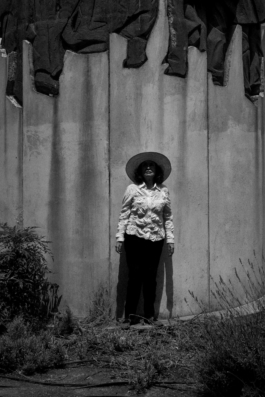
Falcón has written some forty books, including Woman and Political Power, and The New Myths of Feminism, and is also the founder of the magazines “Vindicación Feminista” and “Poder y Libertad”.
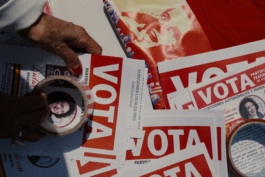
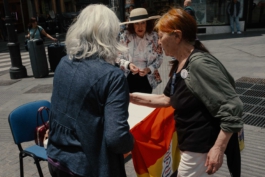
She was a member of the Unified Socialist Party of Catalonia (PSUC) under the Franco dictatorship. As a result she suffered persecution and torture for her political ideas and was imprisoned for several months in the 1970’s for her political demands. In 1976, following the end of the Franco regime, Falcón created the Feminist Collective of Barcelona, and in 1977, founded the Revolutionary Feminist Organization, from which the Feminist Party of Spain was formed.

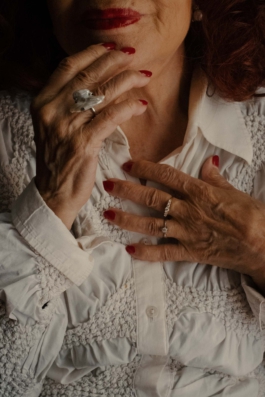
She holds a degree in Performing Arts and a doctorate in Philosophy as well as being a qualified lawyer. She was originally drawn to theatre, her father Cesar Falcón a famous communist leader in Spain who created a theatre company called Teatro Proletario, and so she first studied dramatic arts and later journalism and law. During the 1960’s, she practiced law, defending both political prisoners, unionists, and women in divorce cases.

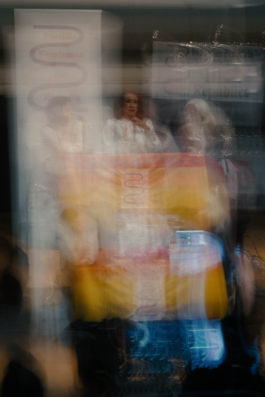
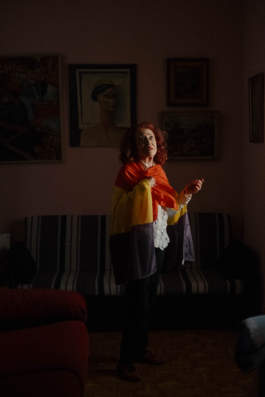
She has received several awards and honours in recognition of her professional and activist career. In October 2014 he signed a manifesto against the independence of Catalonia.
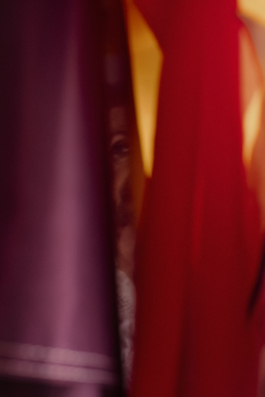
„I still think that it is crucial that we create a fairer relationship in our societies between the more and the less fortunate. So, basically, I still believe in socialism.“
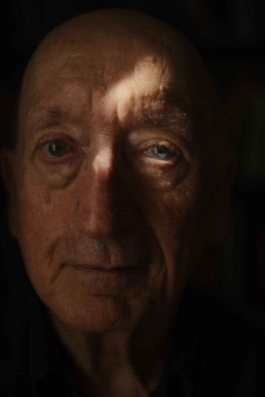
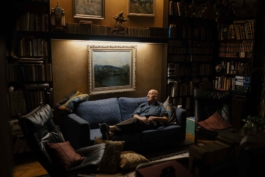
Professor Dr. Jože Pirjevec is one of the most renowned historians in Slovenia and an expert in broader Yugoslav post-war history (particularly in diplomatic history). He was born in Trieste, a city in North Italy, close to the Slovenian border, on the 1st of June of 1940. First, he grew up in Sežana, where he experienced an independent, happy childhood. With seven years old, when Sežana fell to Yugoslavia his family emigrated to Trieste, where he and his family lived in poverty. He began his first studies in Graz but decided after a year that he would enrol in law in Trieste. Finally, he discovered his passion for history and graduated from Scuola Normale di Pisa with the highest grades. He taught in Padua and Pisa and became a well-known professor, author and expert on the West-Balkan history.
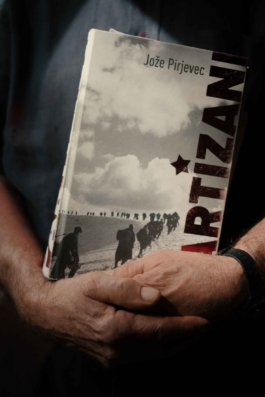
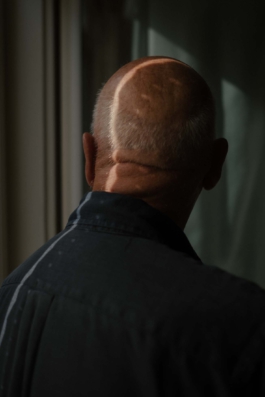
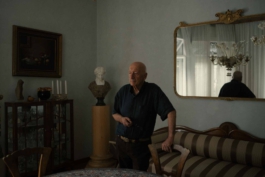
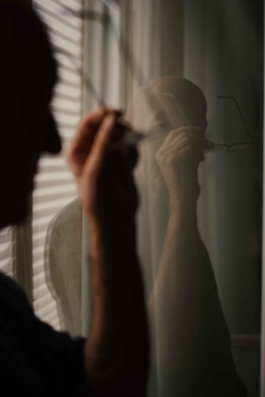
He also became politically active through cooperating with the Slovene intelligentsia and becoming a member in different parties, such as the Slovenian liberal party. Professor Dr. Jože Pirjevec is a polyglot, who speaks six different languages and has lived and worked in many different countries, such as Russia, Austria, USA, Germany and England. All these experiences make him identify as a European citizen that sees great potential in the collaboration of European countries. He believes that only those who travel can really truly understand the spirit of Europe and influence its future in a positive way.
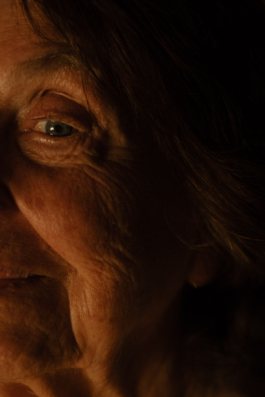
„If it had not been for help, I would have been dead for 75 years already.“
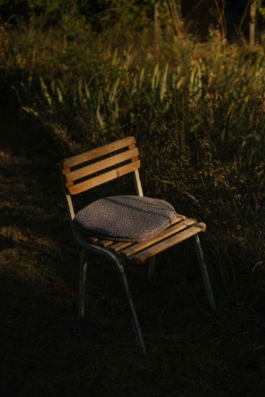

Eva Mosnáková is a Slovakian Holocaust survivor and renowned educationalist.
She was born in 1929 in Brno into the mixed marriage of her Jewish father, a veterinarian, and her Christian mother, and spent her childhood in Handlová.
After Slovakia was occupied by Germany, her family was threatened due their Jewish descent, and went into hiding. At the height of oppression, she was rescued by the Sudeten German Heinrich Konrád and his wife Terézia née Mosnáková. She also met her future husband, Vlado Mosnák, whilst living with her family of rescuers. Vlado, who was an active member of the resistance, was arrested by the Gestapo at the beginning of 1945 and deported to the concentration camp Mauthausen. He survived, and he and Eva married after the end of the war.
After completing distance learning at the University of Economics, Eva Mosnáková worked at the Ministry of Agriculture in Bratislava. She always stood up for what she believed in. Despite the discrimination she was to face at her workplace, she was openly committed against the occupation of Czechoslovakia in 1968.
Today, Eva Mosnáková supports Holocaust victims aid, is the head of the senior club of the Jewish community in Bratislava, and continues to hold lectures at schools about her survival. She turned 90 in December 2019.
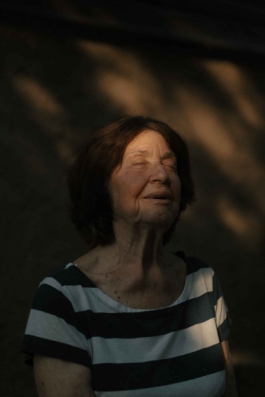
„I first became aware of what Europe was when I left Greece to flee from the Colonels.“
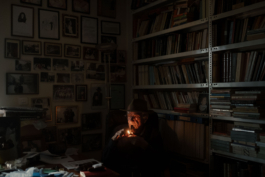

Vassilis Vassilikos is a Greek writer, TV director and politician, born 1934 in Kavala in northern Greece. During his childhood in Thessaloniki and thanks to a few memorable encounters with modern literature at school, Vassilikos wanted to become a writer from an early age. Nevertheless, due to his fathers’ scepticism he first graduated from law school before moving to the United States to study at the Yale School of Dramatic Arts and the TV Studio School in New York, where he witnessed the invention of video technology in 1959.
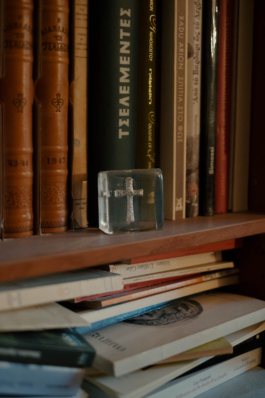
After returning to Greece Vassilikos worked as a journalist and wrote his most popular novel Z in 1966, which provided an account of the events surrounding the 1963 assassination of a democratic opposition politician by right-wing extremists in Thessaloniki. After the coup of 1967, the book was banned by the regime and Vassilikos was forced into exile for seven years. He spent the time in France, Italy and Germany, where he was very productive as a writer. Although many stories are written abroad, the characters are always related to Vassilikos’ origin. All in all, he published more than 100 books, spanning both fiction and documentation.
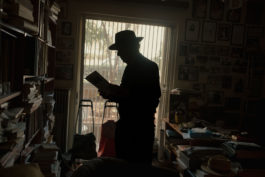
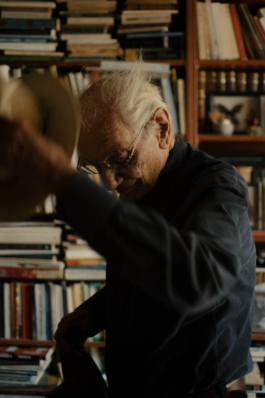
„Essentially, tennis taught me a lot, and I wouldn’t say that the physical aspect was the most important. It taught me honesty because we usually played without a referee.“


Talvi Märja was born in 1935 and is one of the best-known adult educators in Estonia, and Professor Emeritus at Tallinn University. She was a member of the Estonian parliament from 1995 to 1999 as well as a member of the Tallinn City Council. For her dedicated work and contribution to public service, in 2003 she was awarded the national Order (“The Order of the White Star”). In her youth, she played top-level tennis and repeatedly won Estonian championships, before becoming a professional coach.



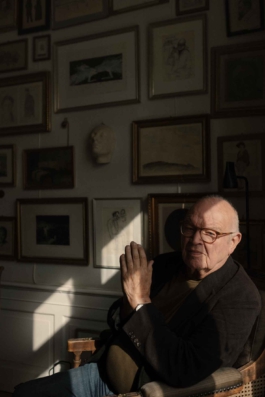
„Well, the idea of the EU is based on paragraphs and articles in a constitution, but nothing is keeping it alive. The paragraphs are not seen as nutritious in their own right, they are not seen as vitamins.“
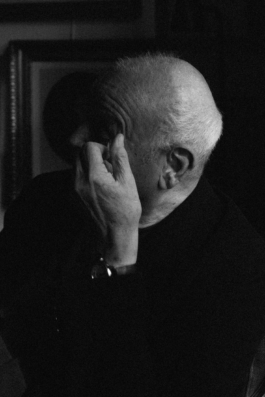
Niels Barfoed is a Danish writer and literary critic, born 1931 in Copenhagen, where he grew up during the war. He initially learned about Europe through literature – first thanks to his father’s old illustrated books, later through modern literature, e.g. from Villy Sørensen. Barfoed studied history of literature in Copenhagen and at Princeton University and received his doctorate in 1978. For a long time, he was much more interested in art than in politics, which changed tremendously in the 1960s. During several travels to Eastern Europe he made friends with intellectuals and creatives and became an important advocate for persecuted writers and dissidents. He used his position as a critic, journalist, newspaper and journal editor to smuggle Western literature to the East and bring manuscripts of Eastern writers to the West. Later Barfoed also contributed to the Danish literary scene as a lecturer and researcher, and as president of Danish PEN.
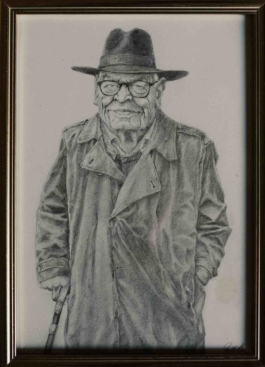
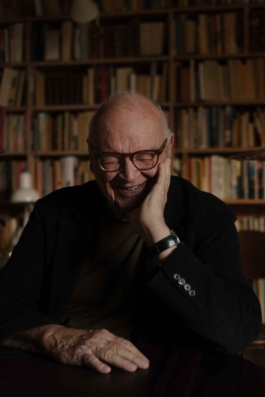
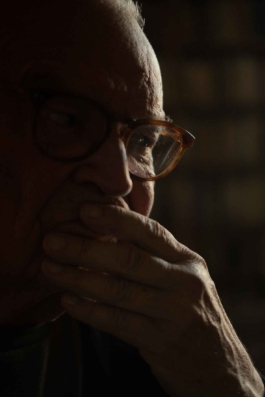
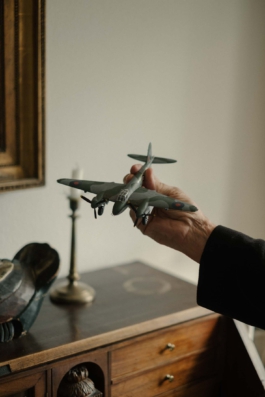

„I truly believe that it would be a terrible step backwards if we were to have individual states again rather than the collaboration that exists in Europe now.“
Bodil Nyboe Andersen is a Danish economist who became Denmark’s first female central bank director. She was born on the 9th October 1940, exactly 6 months after the Nazi occupation of Denmark. One of her earliest memories concerns the liberation of Denmark in May 1945, where the feeling of community made a lasting impression on the young Andersen. In 1947, the family moved to the U.S. for one year, an experience which Andersen describes as “quite overwhelming” in terms of the material wealth in the American society compared to that of Europe.
Andersen studied economics in Copenhagen, and then taught at the University of Copenhagen’s Department of Economics, where she experienced the events of 1968 which radically altered both university and society. In those years her father, the liberal politician and minister Poul Nyboe Andersen, negotiated Denmark’s accession to the European Communities in 1972. In 1995, she moved to the board of Directors of Denmark’s central bank, and in 1995 became its governor, a position she held until 2005. At the central bank, one of her successes was to help mitigate the implications of the political decision not to join the EU’s Economic and Monetary Union (EMU), whereby Denmark was suddenly left at the periphery of monetary decisions.

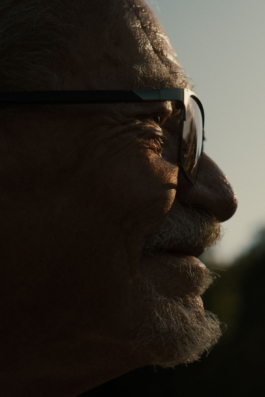
„I thought, that this neo-liberalism, would be counteracted by the fall of the wall, but on the contrary – it was deeply strengthened by it, and things didn’t turn out the way I had imagined. But I was optimistic and thought that we could get a form of reformistic democratic socialism then. At hindsight, that might even seem a little naïve.“
Sven-Eric Liedman is a Swedish author and Professor Emeritus in History of Ideas at the University of Gothenburg. He was born in 1939 and grew up in a family of priests in Southern Sweden. In 1966 he defended his PhD dissertation on “The organic life of the German debate 1795-1845”. Liedman initially stuggled to find a job in academia, so started his career at a mainstream newspaper, but admits that he might have been a little too radical for it – “It was 1968!” Over the course of his academic career, Liedman made significant contributions to Swedish popular education with his works on the history of modernity and the concept of knowledge. His book on the history of political ideas is currently revising its 15th edition. Liedman is also an expert on communist philosophy and thought. In 2015 he published a biography of over 800 pages about Karl Marx’s life and thought, which has been translated into several languages. Liedman has always also been active contributer to the public debate on a variety of topics, and was a literary critic at Sydsvenska Dagbladet for no less than 30 years.
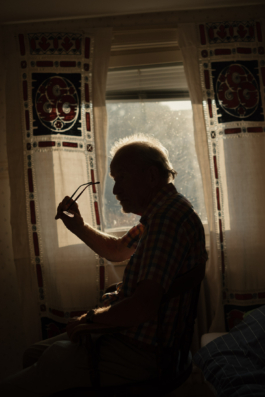
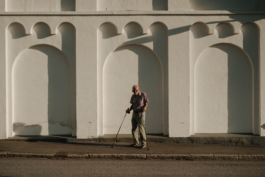
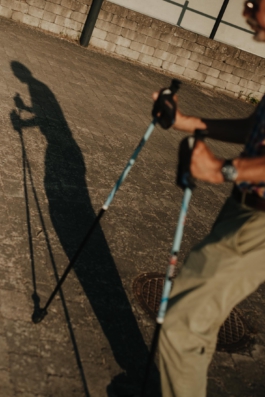
„I am an intellectual. I want to be heard. If I whisper, they won’t hear me, and apart from that I feel obliged to call things by their name.“
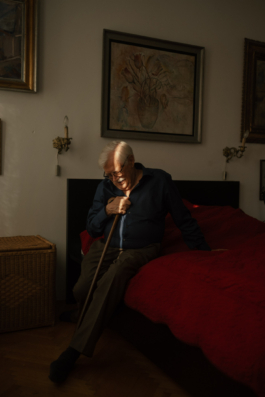
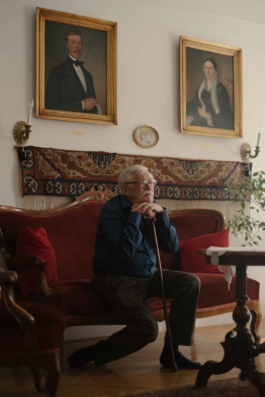
Iván Szelényi is one of Hungary’s most famous sociologist. Among his best known publications is The Intellectuals on the Road to Class Power (1979), co-written with the novelist György Konrád, which described the rise and the social role of the intellectuals as a class and their relation to the ruling political elite, and was interpreted as a direct criticism of the Communist regime under János Kádár. Following its publication Szelényi was arrested, forced to leave the country, and later stripped of his Hungarian citizenship.
In exile, he continued publish important works on urban sociology, structural deficiencies of capitalist and socialist societies, and patterns of social exclusion in post-socialist Europe, holding positions at City University of New York, at UCLA, or Yale University, where he chaired the Department of Sociology and Political Sciences. Szelényi has also written about nationhood, rent-seeking and illiberal capitalism.
After 1989 Szelényi’s Hungarian citizenship was reinstated, and in 2006 he received the Széchenyi Prize, Hungary’s highest state prize for scientific work. Szelényi is currently living in Budapest, the city that also made him an Honorary Citizen in 2008.
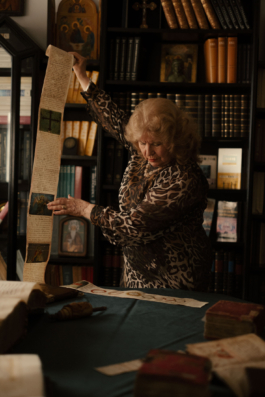
„Back then nobody expected that shock privatization will lead to such levels of corruption; nobody could envisage that globalization will lead to such nationalism."
Axinia Dzurova is a Bulgarian philologist and art historian, born 1942 in Sofia. As her father was an army general and guerrilla fighter (who later became the minister of defence from 1962 to 1990), the family was frequently moving, hiding and even arrested for a short time in 1944. Nevertheless, her favourite place of that period was Sliven – “a town full of all kinds of ethnicities and religions”. Thanks to her unsteady childhood Dzurova also learned to adapt to different situations easily, which often helped her later on in life.
Dzurova can look back to a long and versatile academic career. She made films about Bulgarian artists and wrote several books about byzantine art. She was teaching in Jerusalem, Paris and Yale and she spent much time in the Vatican, researching and creating the first inventory of Slavonic manuscripts. Dzurova became the vice-rector of Sofia University in 1986 and a Doctor Honoris Causa at the University of Soka. She is a foreign member of the Serbian Academy of Sciences and Arts. She is also one of the founders of the Class of Slavonic Studies in Accademia Ambrosiana. Dzurova was married to Georgi Hristov, a professional gymnast and professor of sports management, with whom she has a daughter.
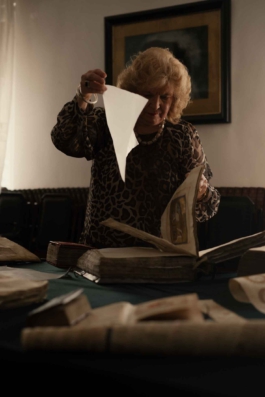
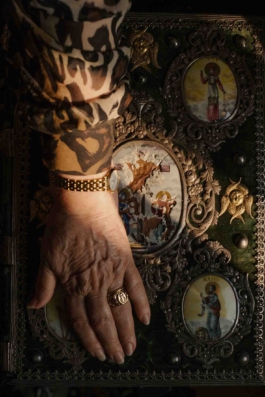
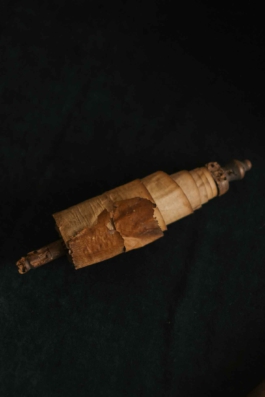
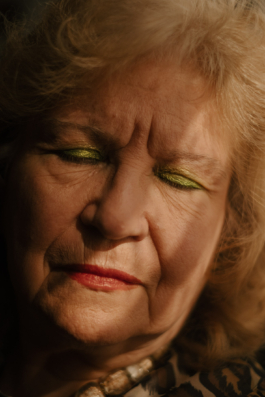
Dzurova first did a degree in Bulgarian Philology at the University of Sofia. But since she has always been fascinated by byzantine churches, she did a second degree in Art History and Theory at the Philosophical Faculty in Moscow, where she had the opportunity to study the originals of Russian avant-garde art. To specialize she went to the University of Belgrade in 1972, which she remembers as a vibrant cultural centre at that time.
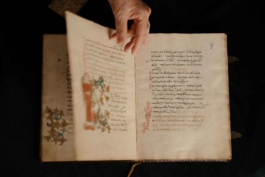
„If there has ever been a mistake in the integration of Europe, it is that cultural diversity has not been sufficiently taken into account."
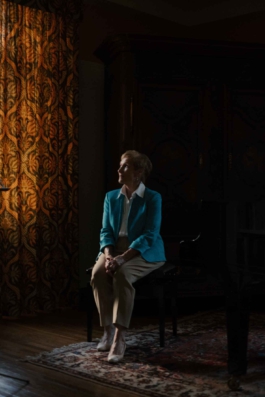
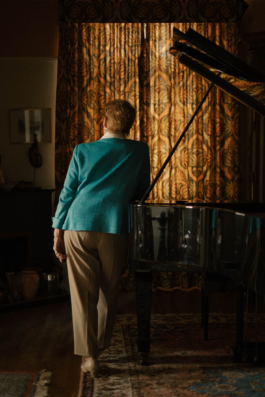
Erna Hennicot-Schoepges is a Luxembourgian politician, born 1941 in Dudelange. Growing up in Luxembourg after the Second World War she already experienced the benefits of the European idea in her childhood. Hennicot-Schoepges went to a catholic school in her hometown, but for her piano lessons she commuted to Brussels once a week. Also she naturally learned German, English and French as the Luxembourgian society is based on multilingualism. Nevertheless, Hennicot-Schoepges’ early career was shaped by a lot of limitations. For following her dream of becoming a professional pianist she was lacking the financial means. And when she got married she prematurely had to quit her job as a radio host. Eventually these experiences motivated her to take an active role and become a politician. Hennicot-Schoepges began as the mayor of Walferdange in 1987 and was among others Minister of Culture in Luxembourg from 1995 until 2004 as well as Member of the European Parliament from 2004 until 2009.
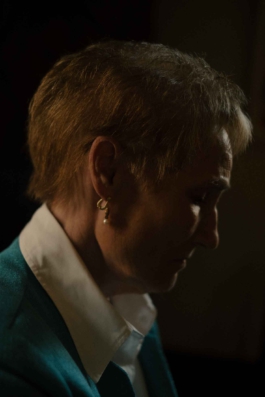
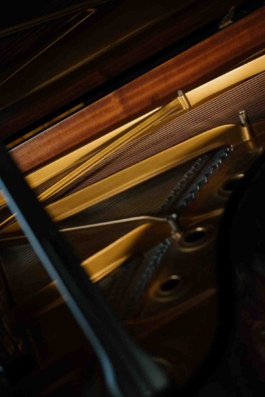
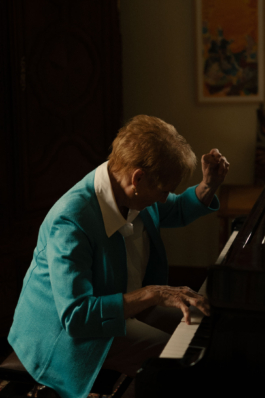


„You and thousands of [young] people like you are out there and take action on your own initiative. You have not been coerced or bribed by anyone. And this gives impetus and motivation to the rest.“
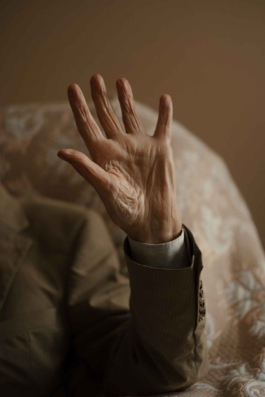
Oleh Panchuk was born 1932 in Chernivtsi, as grandson of the Ukrainian writer Olha Kobyljanska. Panchuk was a professor at the Faculty of Chemistry, and even today, at the age of 87 he is still teaching. Oleh Panchuk was also active in the democratic and independence movement in Ukraine, and was one of the founders of the People’s Movement in Bukovina.
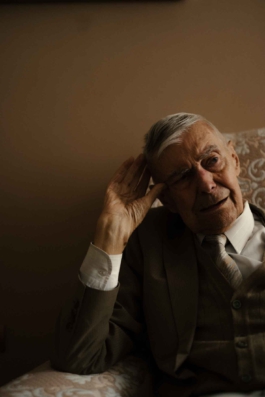
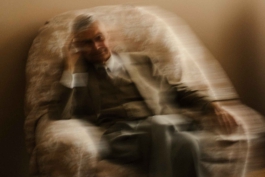
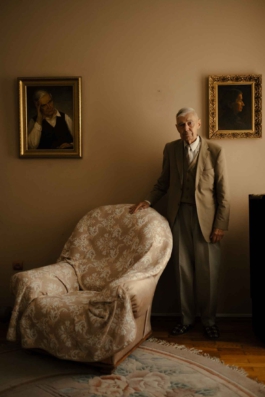

„Die ganze Welt ist nämlich verpflichtet, Gutes zu tun und dabei zu helfen, etwas Böses zu korrigieren. Es ist nicht nur die Pflicht von irgendjemandem, sondern jeder von uns, der etwas beitragen kann, hat die Pflicht, alles zu tun, was er kann, um die Ungerechtigkeit zu korrigieren“
Interview coming soon!
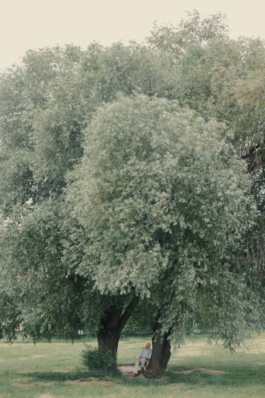
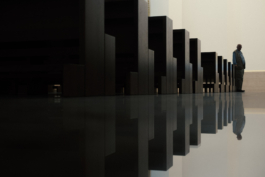
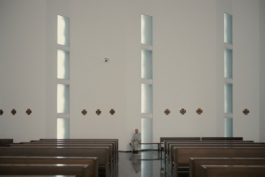
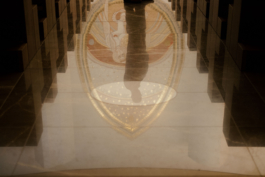
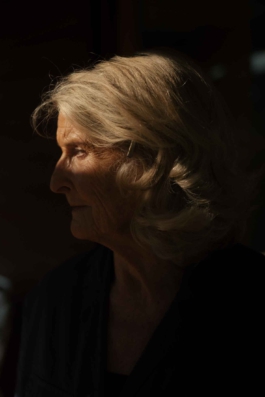
„I have to say that I think cultural – and musical – exchange between all the European countries is very important. And you can criticize the EU as much as you like, but that was the reason why I voted for the EU in Norway, something you weren’t supposed to do. You got the most scornful looks!“
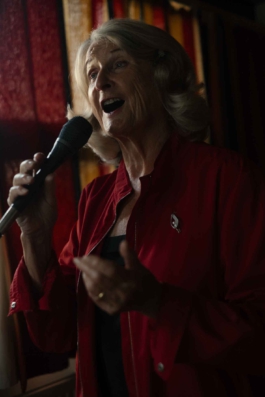
Karin Krog was born in Oslo, Norway in 1937. She is a singer of modern jazz and known as “the original European voice of jazz singing”. Being married and having two children at the age of 23, Krog sometimes performed in jam sessions in Oslo. There she attracted the attention of the pianist Kjell Karlsen, who hired her to play in his sextet. In 1962 she started her first band and became a student of the Norwegian-American singer Anne Brown, still thinking she could never make a living out of singing. But with her first solo album in 1964 her career began to develop rapidly. She collaborated with many different musicians and played on numerous jazz festivals all over Europe. Krog emphasizes the importance of the cultural (and musical) exchange among the European countries, which is why she voted for Norway to join the EU in the two referendums.
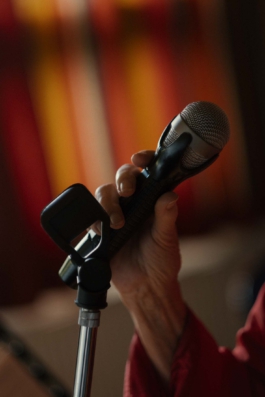
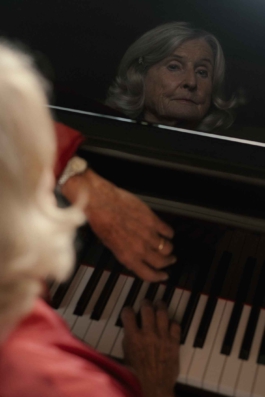
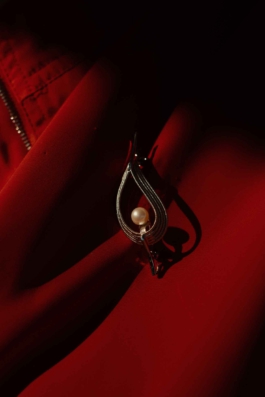
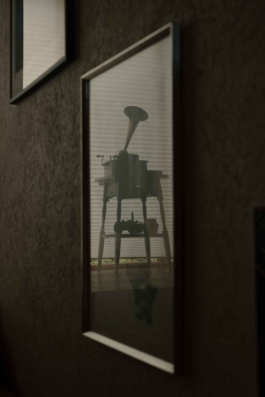
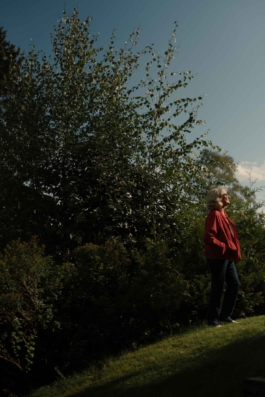
„If you bear in mind that my research has led me into the great libraries of this continent, central, western and southern, then you can imagine that I feel at home in Europe."
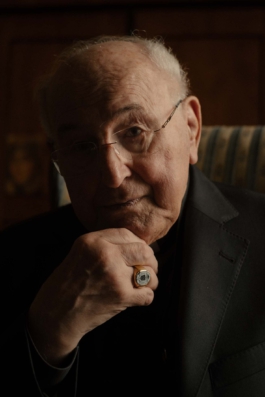
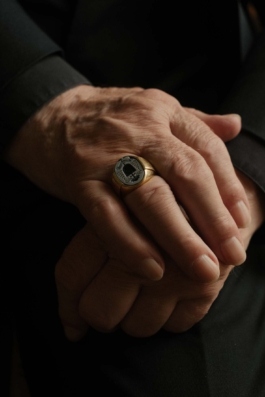
Walter Brandmüller is a German theologian and historian, and has been a prelate of the Catholic Church since 2010. Born in the German city of Ansbach in 1929, his was first baptised a Protestant and later raised as a Catholic. It was then during a seminar of the Catholic youth organisation that lightning struck and he decided to become a priest. After being ordained in 1953, at the beginning of his career he taught modern and medieval Church studies at the University of Augsburg, whilst in parallel being the pastor of the small village of Walleshausen. After being awarded emeritus status – which would usually mark the beginning of retirement – he then left Bavaria for the Vatican to become the Catholic Church’s Chief Historian. Brandmueller subsequently served a the president of the Pontifical Committee for Historical Sciences from 1998 to 2009 in the Vatican, and was bestowed a titular bishopship in 2010 before being admitted to the College of Cardinals by Pope Benedict XVI.
Thanks to the Goethe-Institut London who gave me a grant for this project.